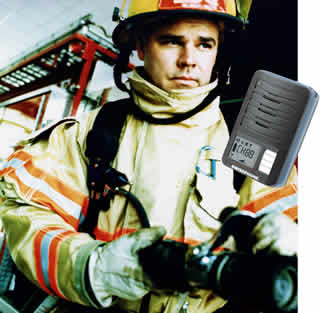The Virginia Tech panel's recommendations Friday, August 31, 2007 The panel issued more than 70 recommendations in its 11-chapter report. Most of them are listed here, though they have been edited to fit in the available space. For the full report, see the links at left. [On this page.] Emergency planning Universities should do a risk analysis (threat assessment) and then choose a level of security appropriate for their campus. Virginia Tech should update and enhance its Emergency Response Plan and bring it into compliance with federal and state guidelines. Virginia Tech and other institutions of higher learning should have a threat assessment team that includes representatives from law enforcement, human resources, student and academic affairs, legal counsel and mental health functions. Students, faculty, and staff should be trained annually about responding to various emergencies and about the notification systems that will be used. Universities and colleges must comply with the Clery Act, which requires timely public warnings of imminent danger. Campus alerting Campus emergency communications systems must have multiple means of sharing information. In an emergency, immediate messages must be sent to the campus community that provide clear information on the nature of the emergency and actions to be taken. Campus police as well as administration officials should have the authority and capability to send an emergency message. Police training The head of campus police should be a member of a threat assessment team as well as the emergency response team for the university. Campus police must report directly to the senior operations officer responsible for emergency decision-making. Campus police must train for active shooters (as did the Virginia Tech Police Department). The mission statement of campus police should give primacy to their law enforcement and crime prevention role. Cho's mental health Universities should recognize their responsibility to a young, vulnerable population and promote the sharing of information internally, and with parents, when significant circumstances pertaining to health and safety arise. Institutions of higher learning should review and revise their current policies related to: a) recognizing and assisting students in distress; b) the student code of conduct, including enforcement; c) judiciary proceedings for students, including enforcement; d) university authority to appropriately intervene when it is believed a distressed student poses a danger to himself or others. Universities must have a system that links troubled students to appropriate medical and counseling services either on or off campus, and to balance the individual's rights with the rights of all others for safety. Incidents of aberrant, dangerous, or threatening behavior must be documented and reported immediately to a college's threat assessment group, and must be acted upon in a prompt and effective manner to protect the safety of the campus community. Culturally competent mental health services were provided to Cho at his school and in his community. Adequate resources must be allocated for systems of care in schools and communities that provide culturally competent services for children and adolescents to reduce mental illness-related risk as occurred within this community. Policies and procedures should be implemented to require professors encountering aberrant, dangerous, or threatening behavior from a student to report them to the dean. Reporting requirements for aberrant, dangerous, or threatening behavior and incidents for resident hall staff must be clearly established and reviewed during annual training. Repeated incidents of aberrant, dangerous, or threatening behavior must be reported by Judicial Affairs to the threat assessment group. Repeated incidents of aberrant, dangerous, or threatening behavior should be reported to the counseling center and reported to parents. The law enforcement agency at colleges should report all incidents of an issuance of temporary detention orders for students (and staff) to Judicial Affairs, the threat assessment team, the counseling center and parents. The college counseling center should report all students who are in treatment pursuant to a court order to the threat assessment team. The state should study what level of community outpatient service capacity will be required to meet the needs of the commonwealth and the related costs in order to adequately and appropriately respond to both involuntary court-ordered and voluntary referrals for those services. Virginia's code should be amended to extend the time periods for temporary detention to permit more thorough mental health evaluations. Virginia's code should be amended to authorize magistrates to issue temporary detention orders based upon evaluations conducted by emergency physicians trained to perform emergency psychiatric evaluations. The criteria for involuntary commitment in Virginia's code should be modified in order to promote more consistent application of the standard and to allow involuntary treatment in a broader range of cases involving severe mental illness. The number and capacity of secure crisis stabilization units should be expanded where needed in Virginia to ensure that individuals who are subject to a temporary detention order do not need to wait for an available bed. The role and responsibilities of the independent evaluator in the commitment process should be clarified. The Virginia code should be amended to require the presence of the pre-screener or other Community Services Board representative at all commitment hearings. The independent evaluator, if not present in person, and treating physician should be available when possible if needed for questioning during the hearing. The Virginia Health Records Privacy statute should be amended to provide a safe harbor provision that would protect health entities and providers from liability or loss of funding when they disclose information in connection with evaluations and commitment hearings. Virginia Health Records Privacy and Virginia code should be amended to ensure that all entities involved with treatment have full authority to share records with each other and all involved in the involuntary commitment process while providing the legal safeguards needed to prevent unwarranted breaches of confidentiality. Virginia code should be amended to clarify: - The need for specificity in involuntary outpatient orders.
- The appropriate recipients of certified copies of orders.
- The party responsible for certifying copies of orders.
- The party responsible for reporting noncompliance with outpatient orders and to whom noncompliance is reported.
- The mechanism for returning the noncompliant person to court.
- The sanction(s) to be imposed on the noncompliant person who does not pose an imminent danger to himself or others.
- The respective responsibilities of the detaining facility, the Community Services Board, and the outpatient treatment provider in assuring effective implementation of involuntary outpatient treatment orders.
Information privacy Accurate guidance should be developed by the attorney general of Virginia regarding the application of information privacy laws to the behavior of troubled students. Privacy laws should be revised to include "safe harbor" provisions. The following amendments to the Family Educational Rights and Privacy Act should be considered: FERPA should explicitly explain how it applies to medical records held for treatment purposes; FERPA should make explicit an exception regarding treatment records; The Department of Education should allow more flexibility in FERPA's "emergency" exception. Schools should ensure that law enforcement and medical staff (and others as necessary) are designated as school officials with an educational interest in school records. The Commonwealth of Virginia Commission on Mental Health Reform should study whether the result of a commitment hearing (whether the subject was voluntarily committed, involuntarily committed, committed to outpatient therapy, or released) should also be publicly available despite an individual's request for confidentiality. The national higher education associations should develop best practice protocols and associated training for information sharing. Gun purchases All states should report information necessary to conduct federal background checks on gun purchases. Virginia should require background checks for all firearms sales, including those at gun shows. Anyone found to be a danger to themselves or others by a court-ordered review should be entered in the Central Criminal Records Exchange database regardless of whether they voluntarily agreed to treatment. The existing attorney general's opinion regarding the authority of universities and colleges to ban guns on campus should be clarified immediately. The Virginia General Assembly should adopt legislation in the 2008 session clearly establishing the right of every institution of higher education in the commonwealth to regulate the possession of firearms on campus if it so desires. Universities and colleges should make clear in their literature what their policy is regarding weapons on campus. Murders in the dorm In the preliminary stages of an investigation, the police should resist focusing on a single theory and communicating that to decision makers. All key facts should be included in an alerting message, and it should be disseminated as quickly as possible, with explicit information. Recipients of emergency messages should be urged to inform others. Universities should have multiple communication systems, including some not dependent on high technology. Plans for canceling classes or closing the campus should be included in the university's emergency operations plan. Murders at Norris Hall Campus police everywhere should train with local police departments on response to active shooters and other emergencies. Dispatchers should be cautious when giving advice or instructions by phone to people in a shooting or facing other threats without knowing the situation. Police should escort survivors out of buildings, where circumstances and manpower permit. Schools should check the hardware on exterior doors to ensure that they are not subject to being chained shut. Take bomb threats seriously. Students and staff should report them immediately, even if most do turn out to be false alarms. Emergency services Montgomery County should develop a countywide emergency medical services, fire, and law enforcement communications center. A unified command post should be established and operated based on the National Incident Management System Incident Command System model. An emergency operations center must be activated early during a mass casualty incident. Regional disaster drills should be held on an annual basis. The Western Virginia Emergency Medical Services Council should review/revise the Multi-Casualty Incident Medical Control and the Regional Hospital Coordinating Center functions. Chief medical examiner The chief medical examiner should not be performing the postmortem exams in mass casualty events; the chief medical examiner should be managing the overall response. The Virginia Department of Criminal Justice Services should mandate training for law enforcement officers on death notifications. The office of the chief medical examiner should participate in disaster or national security drills and exercises to plan and train for effects of a mass fatality situation on medical examiner operations. Immediate aftermath Emergency management plans should include a section on victim services that addresses the significant impact of homicide and other disaster-caused deaths on survivors and the role of victim service providers in the overall plan. Universities and colleges should ensure that they have adequate plans to stand up a joint information center with a public information officer and adequate staff during major incidents on campus. When a family assistance center is created after a criminal mass casualty event, victim advocates should be called immediately to assist the victims and their families. Regularly scheduled briefings should be provided to victims' families as to the status of the investigation. Short- and long-term counseling should be made available to first responders, students, staff, faculty members, university leaders, and the staff of The Inn at Virginia Tech. Training in crisis management is needed at universities and colleges. Law enforcement agencies should ensure that they have a victim services section or identified individual trained and skilled to respond directly and immediately to the needs of victims of crime from within the department. Universities and colleges should create a victim assistance capability either in-house or through linkages to county-based professional victim assistance providers. | 








 Membership Benefits:
Membership Benefits: 










 Stopwatch
Stopwatch 
 (Mc
Lean, VA) Martin (Marty) C. Cooper will be the keynote speaker
on October
(Mc
Lean, VA) Martin (Marty) C. Cooper will be the keynote speaker
on October 















 ATM300
ATM300 












 Aug 27, 2007, News Report
Aug 27, 2007, News Report









 If you see someone in the field (like salespeople, technicians, and delivery people) using paper forms, their company could probably save a pile of money, and get much better timeliness, accuracy and efficiency, by using converting to Outr.Net's Wireless Forms. Custom applications for as little as $995, delivered in just a few days.Outr.Net has a web page on Wireless Forms for Timeports at:
If you see someone in the field (like salespeople, technicians, and delivery people) using paper forms, their company could probably save a pile of money, and get much better timeliness, accuracy and efficiency, by using converting to Outr.Net's Wireless Forms. Custom applications for as little as $995, delivered in just a few days.Outr.Net has a web page on Wireless Forms for Timeports at: 











